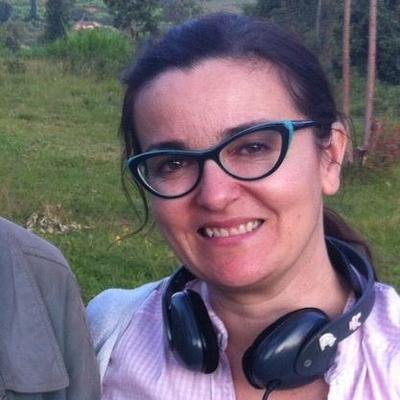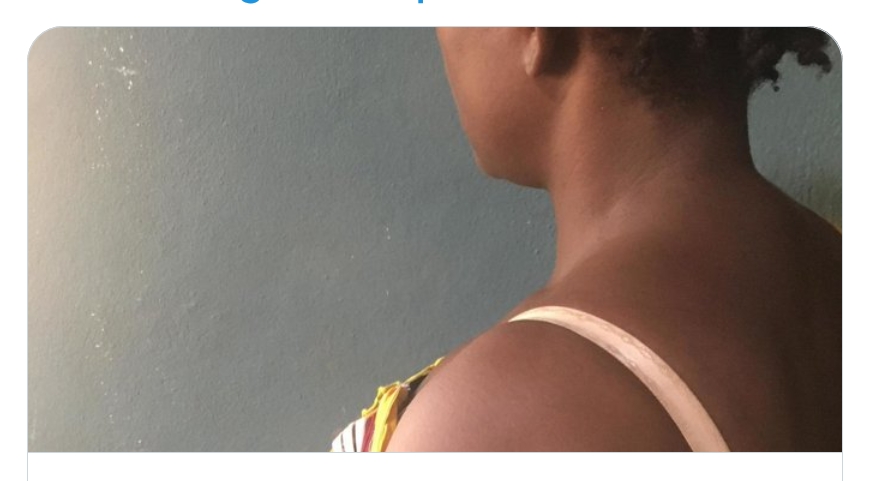
*RFI Journalist Just Back From Anglophone Cameroon
Laura Angela Bagnetto, award winning journalist just got back from a reporting trip to Cameroon and its sad what she found. Back in Paris, Radio France International’s Susanne asked her what’s going on in Cameroon? She started her response with a little bit of history.
Basically it is a country that is bilingual, it is mainly French but there is a small portion of it that is anglophone. That is the north west and south west regions. Back in 2016, unfortunately there were a lot of judges, lawyers and teachers who were coming into the region to work who were Francophones, not Anglophones. So, the children and the people didn’t understand because there are two different laws, there are Anglophone law (Common Law) and Francophone law (Civil Law) in Cameroon. So, it created a lot of problems.
People were very upset, teachers and lawyers took to the streets peacefully and unfortunately there was a crackdown in 2017 by the government and the military and it sparked a separatist movement by the separatist, the Ambazonians. There are a number of groups but Ambazonia is sort of the blanket name for the separatist state that they now want. And there has been fighting ever since for the past 3 years between the separatists and the military who are in the area of both regions and there have been a lot of massacres, problems, killings and rapes. It has been horrific.
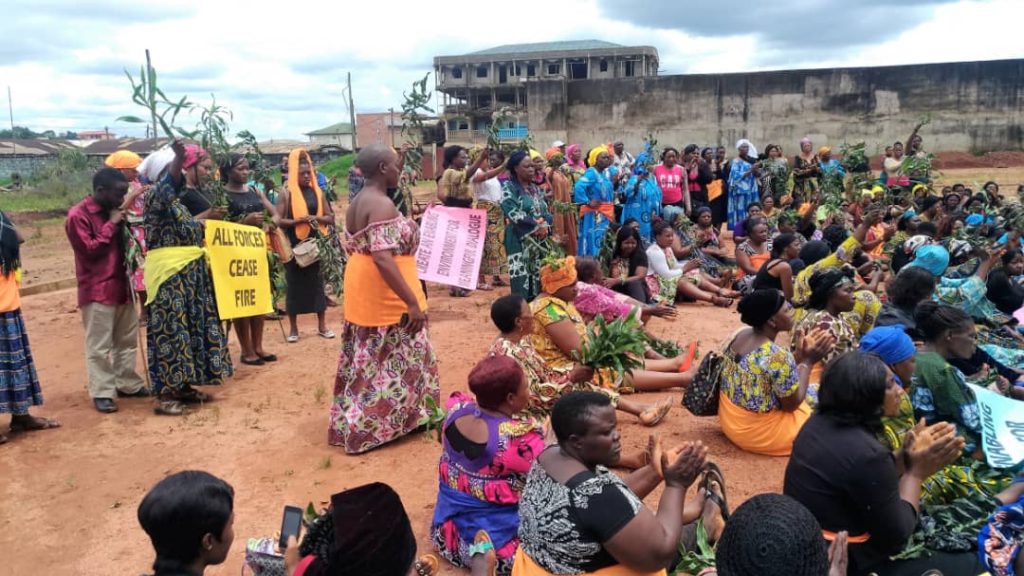
Presenter (Suzanne): The civilians are caught in the cross fire. The Ambazonians, Amba Boys or armed separatist come in and accuse them of being in the government side and wipe them out and those that are left the government comes in and accuses them of being on the separatist side and wipe out the rest of them. It is a horrific situation in Cameroon right now and it is not known. Laura Angela is here to tell the story and it wasn’t easy for her to get into these regions when really, she wasn’t supposed to be there but there she was there. So, what moved you the most? What story or person moved you the most?
Laura Angela: Well while I was in that region and also in the adjourning Littoral francophone region. I spoke to almost 90 people and so there was a lot of stories, a lot of tears, a lot of heart ache for people. But the one that touched me the most was a woman that I decided to call Bella because she was so beautiful after all that she had been through. She really was an amazing person. I spoke to her in Mamfe. She is the main character in my first story that’s on the website and basically the military came into their village, and shot in the air, people got scared they all ran into the bush. These are little villages that line the main road that goes all the way to Nigeria and right behind is the bush. So, everybody runs in there. They created a bush Camp. Bella was nursing her child still even though she ran into the bush, she had to go back into the house to get supplies. So, she went back when the military had left. It is too dangerous to live in the house so; they were all living in the bush which is sad and there is malaria. There is lot of problems. There are wild animals and there is no sanitation. It is a horrible situation. She went back got her stuff and it became dark so she couldn’t go back into the bush.
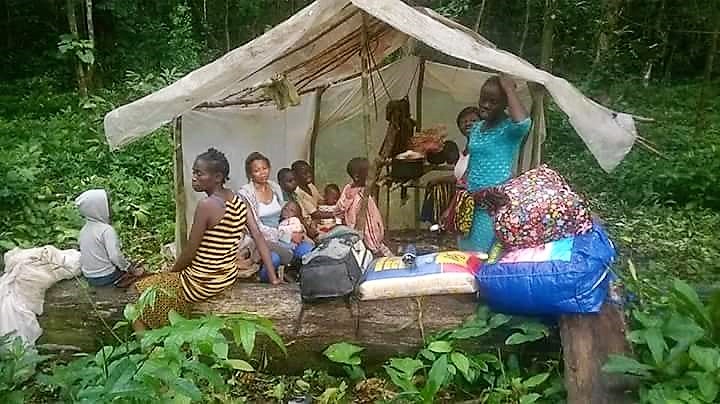
When she went back the next morning, she couldn’t find her sister in law who was pregnant and her four little nephews. So, she had her baby but she could fine them. So she looked with the other villagers for four days for her family but she couldn’t find them. In the end because she was scared, she went to the military in town and said, did you arrest this my five family members because I can’t find them? And they said no, no, no we didn’t arrest them but go back you will probably find them. She went back and she found a shallow grave. So she, with the help of a few villagers dug up her family members, and saw that they were shot.
The military had actually asked her to give them an update. So, she called them and said I found them, they are dead and they said yes, we are really sorry. They apologized, according to her. They basically went to the bush and said, that’s where the Amba Boys are and so we basically shot and we didn’t realise that they were civilians, and so, we are sorry. And to compensate her losses, her five plus unborn child losses, they gave her two thousand CFA (2,000 CFA) about 3€ (three euro) phone credit.
When she told me the story, she was laughing about the phone credit because it is absolutely ridiculous and then she cried; because you can’t equate phone credit with 5 human beings and a foetus. She has had a really hard time and she is now leaving in town but things are difficult for her just like they are for everyone else. And that’s one of so many stories that I heard. Each story that I put in my article represent at least 4 or 5 similar stories because I couldn’t put them all in there because they all had very important stories to tell. And they all risked their lives to tell me their stories because we had to do it in secret. I had to change their names. Some of them the stories are so sensitive I couldn’t give the name of the village. These are stories that have happened for the past 3 years. Nobody knows about it and these people are suffering. And they are starving and they have nothing. And it is, I mean they have no hope, I mean they even told me that because what is next? Living in the bush? People are dying there as well.
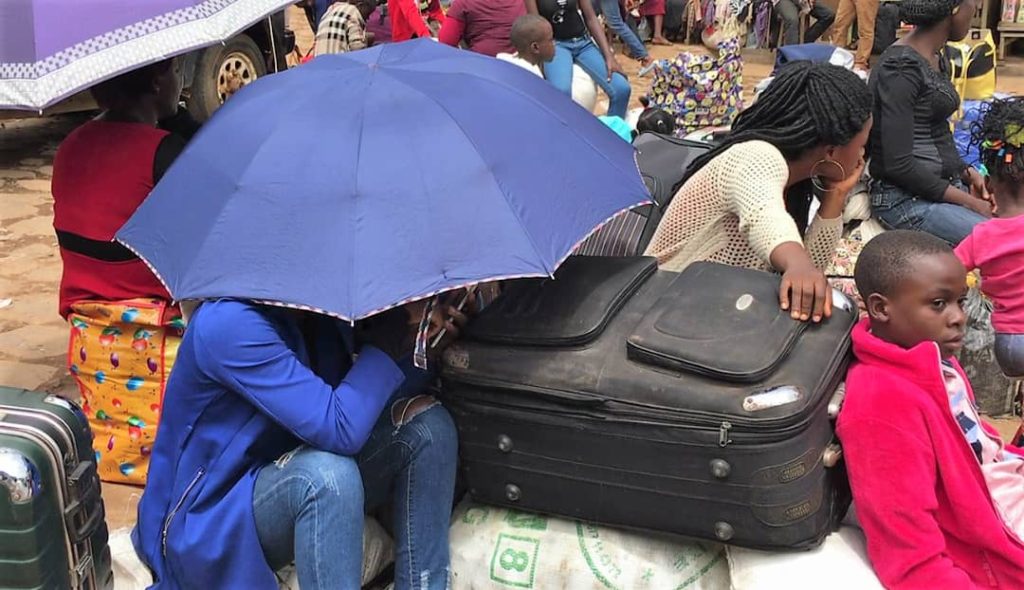
Suzanne: Has the Cameroonian government, has Biya said anything some way like coming to an accord or agreement?
Laura Angela: Well it is interesting that you say that because they have been a little bit of movement internationally. On February 14th, I was in the country but not in the region – the north west region, also the anglophone region. In Ngarbuh village, there was an attack. The UN confirmed an attack by armed men, killed at least 21 people mainly children and a pregnant woman and human rights watch was able to in their way confirm that this was carried out by the military. They accused the military of this. The military denied that this happened. Paul Biya said that this didn’t happened.
When president Emmanuel macron went to the Salon d’Agriculture he was accosted by an opposition member, and said what are you doing about Cameroon? And he said this is horrible and I am going to do something about it. And he came through on his promise, last Sunday. He made a phone call to Biya. Biya has agreed that there should be an independent investigation into this massacre of 21 people. That’s what we have for now, that’s an important thing that has happened but it is not enough. When I was there, I also spoke to non-governmental organisations.
I have been in many hotspots. I have spoken to people who are scared to talk and people who even didn’t want to talk and always, non-governmental organizations are willing to talk because they want to get the word out.
This people are suffering there. I spoke to many but I couldn’t get them to go on the record.
This is how scary the situation is they are afraid and they are trying to help this people but under the radar.
